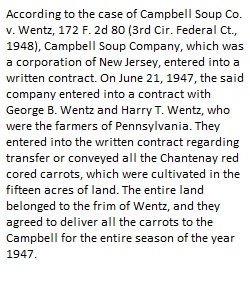


Q What relief did the plaintiff (Campbell's) want from the lower court? Why did the lower court refuse to give Campbell's that relief? The court on appeal came to the same result as the lower court, but for a completely different reason. What was that reason?
View Related Questions